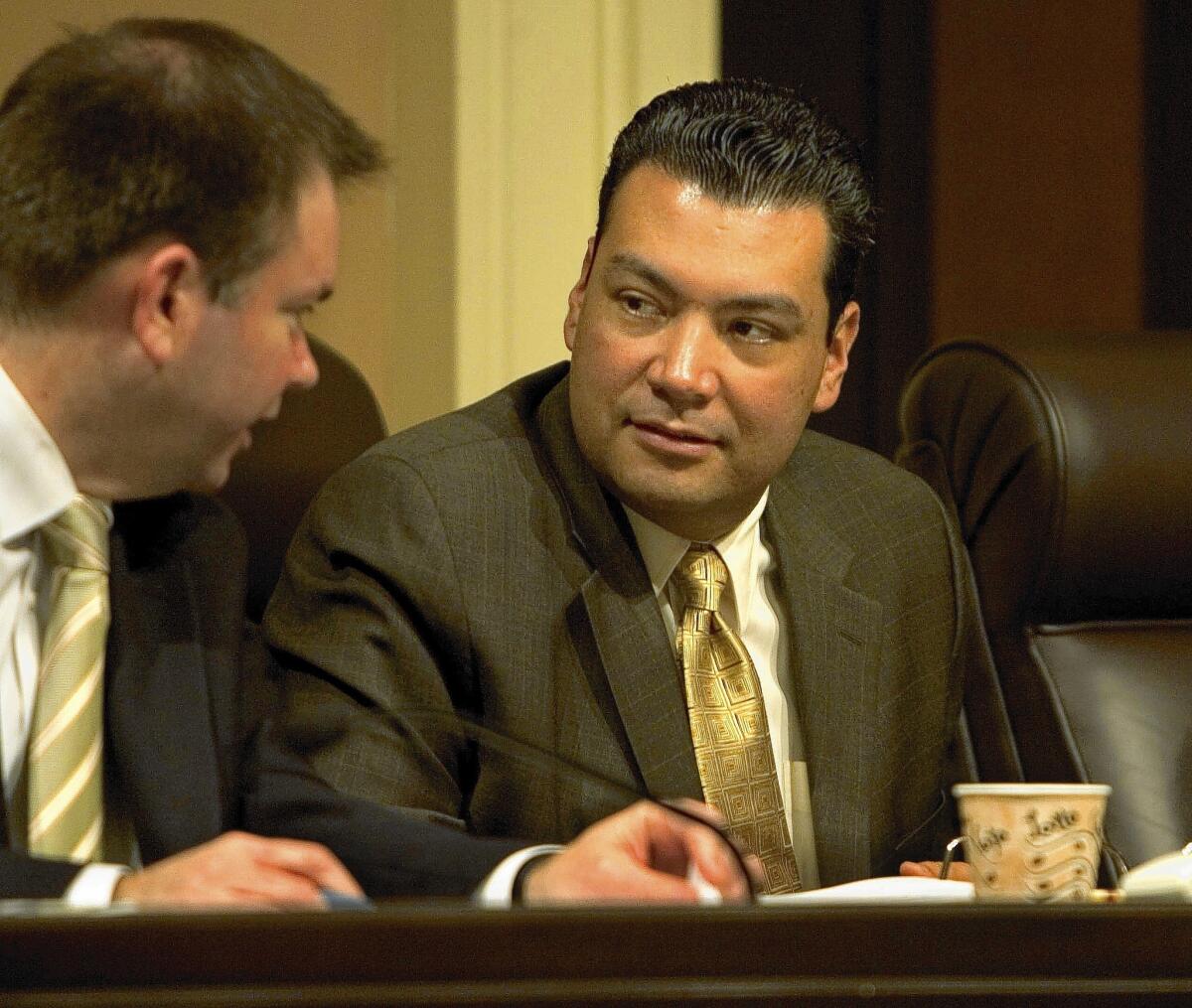California bill would make it illegal to sell mislabeled seafood

There’s something fishy about some of the seafood we eat in California, says state Sen. Alex Padilla, and he wants to change that.
According to a recent report, shoppers and diners who thought they were buying lemon sole wound up eating blackback flounder, red snapper fans got tilapia, and white tuna in sushi was actually escolar.
The 2013 study by Oceana, an aquatic conservation group, has spurred Padilla (D-Pacoima) to write a seafood mislabeling bill. The measure, SB 1138, would make it illegal to offer to sell misbranded seafood, and last week it passed the Senate on a 36-0 vote. It now goes to the Assembly.
The law would be enforced by the state Department of Public Health along with state and local prosecutors. First-time violators could be punished with a fine of up to $1,000 and a year in jail, plus civil penalties.
“To protect our health, oceans and economy, it is essential that the seafood be labeled accurately,” Padilla said. “The seafood we order should be the seafood we are served.”
The problem is widespread in many stores and restaurants across California and the nation, according to the Oceana study. Using genetic testing of fish, it found over a two-year period that 84% of sushi samples and 52% of all fish were mislabeled in Southern California.
About one-third of all fish tested nationwide — 1,200 samples from 674 retail outlets in 21 states — was mislabeled, based on U.S. Food and Drug Administration guidelines.
Health experts recommend eating seafood twice a week because fish contains oils that benefit the heart and circulatory system.
But Oceana’s California program director, Geoff Shester, warned that eating the wrong fish — particularly ones with concentrations of mercury — poses dangers for children and women of child-bearing age. Correct labeling, he said, “gives consumers the information they need to make informed decisions.”
Padilla’s proposal, so far, has encountered no opposition in Sacramento from the grocery or restaurant industries.
Rising electric rates
California’s wholesale electricity prices, already some of the nation’s highest, rose 31% last year, the operator of the electric grid connecting most of the state reported last week.
Jumps in the cost of natural gas, used to generate the bulk of California’s power, accounted for most of the increase, said the California Independent System Operator. Experts say a portion of those increases is certain to make its way into electric bills from Southern California Edison Co. and other investor-owned utilities by next year.
Employment back up
In terms of jobs, the Golden State may be finally climbing out of the economic pit it plunged into during the economic downtown of 2008-09.
Total payroll employment may be reaching the state’s 2007 pre-recession peak of 15.4 million jobs. A new forecast by the University of the Pacific’s Eberhardt School of Business predicts that the state will hit this level during the three-month period that ends June 30.
Twitter:@MarcLifsher
More to Read
Inside the business of entertainment
The Wide Shot brings you news, analysis and insights on everything from streaming wars to production — and what it all means for the future.
You may occasionally receive promotional content from the Los Angeles Times.











